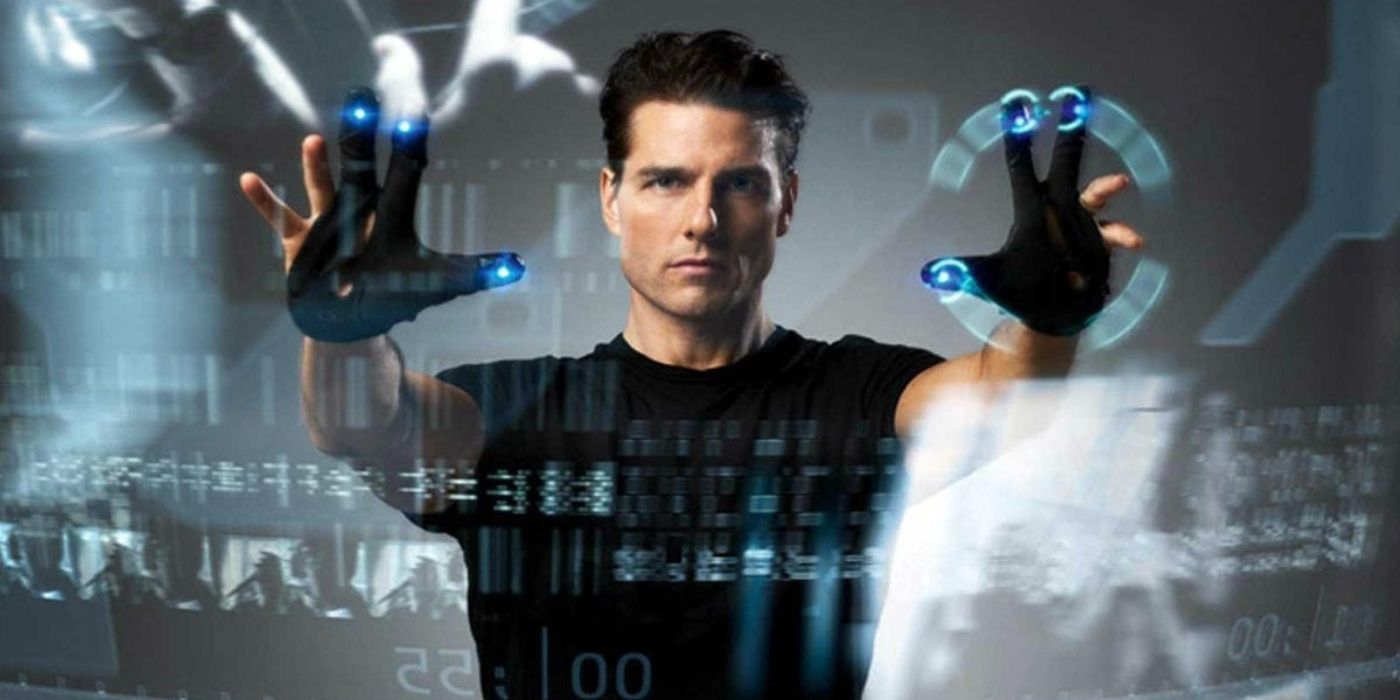While seemingly worlds apart, the genres of fantasy and science fiction are often lumped together, largely because they both imagine impossible worlds that will likely never exist. After all, science fiction has the word "fiction" right in its name. As such, it's easy for most sci-fi movies to embrace the fiction, creating technologies, worlds, and stories that are outside any realm of possibility.
With that being said, oftentimes there comes a sci-fi movie that veers more into "science" than "fiction". These movies not only paint unique and interesting pictures of societies that could be, but do so by recognizing how their fantasies could one day come to fruition.
5 The Martian
Ridley Scott's surprising sci-fi comedy-drama stars Matt Damon as an astronaut who finds himself trapped on Mars, and then is forced to find a way to survive on a seemingly inhospitable planet. With its focus on spectacle and humor, it might seem easy to assume Mark Watney's methods of survival were arbitrarily invented in order to keep the plot moving.
In actuality though, the filmmakers went to great lengths to portray an accurate method of survival. When author Andy Weir wrote the novel on which The Martian is based, he set out to make the novel as scientifically accurate as possible. Scott did the exact same with his adaptation, consulting with experts at NASA to assure the film's accuracy.
Most notable is the way in which Watney produces food and water on Mars. Both Scott and screenwriter Drew Goddard have pointed out some inaccuracies, such as the harsh winds, that were more or less kept in the film just to keep the plot moving.
4 Interstellar
A break from dark action-thrillers such as The Dark Knight and Inception, Christopher Nolan opted to have his first film about space follow a more emotional throughline than any of his films up to that point. Following a group of astronauts trying to discover a new habitable planet for humanity, Interstellar focuses heavily on the human aspect of deep-space travel while also showcasing unique worlds and technologies that modern humans can only dream of.
Much like his other sci-fi movies, one might think that Interstellar's depiction of space is completely fabricated. In reality, Nolan collaborated with theoretical physicist Kip Thorne to make the film as accurate as feasibly possible. The depictions of wormholes and black holes are generally considered to be accurate, with the picture of the event horizon of a black hole taken by the Event Horizon Telescope in 2019 being visually identical to that found in Interstellar.
The idea of time passing differently for the astronauts on one of the planets than for those aboard the spacecraft is also depicted as being accurate. Neil deGrasse Tyson has also commented that the film's ending could be considered accurate since nobody really knows what's actually inside a black hole.
3 Minority Report
Steven Spielberg's underrated sci-fi action movie features many fantastical set pieces and thought-provoking ideas, making it both an exciting and compelling watch. While developing the movie, Spielberg set out to consider what futuristic technologies might exist in the film's 2054 setting. Consulting many scientific experts, the filmmakers created what they called a "2054 bible", and eerily enough, many of the film's predictions either seem to be or already have come true.
Much of the film's technology exists and is in regular use today. For example, personalized advertising often occurs on the internet, with advertisers showing ads based on a user's internet and search history. Self-driving cars have already been in development for quite some time too and may become an everyday item in the not too distant future.
Conversely, retina scanners and multi-touch interfaces have become so integrated into modern-day life that they hardly seem like science-fiction anymore. Even the film's concept of "pre-crime" may one day come into reality. IBM has already developed a system that attempts to predict crimes by going through records of past crimes and police data.
2 The Andromeda Strain
The Andromeda Strain is a rare sci-fi movie in that its commitment to accuracy is both its biggest strength and its biggest weakness. Based on the novel by Jurassic Park author Michael Chrichton, it tells the story of several scientists trying to discover a cure for an extraterrestrial virus before its first outbreak occurs.
Both Chrichton and screenwriter Nelson Gidding set out to make The Andromeda Strain as accurate as possible. The result is a film that isn't exactly as exciting or interesting as it could be, but one that offers up a realistic portrayal of what would actually happen if such a situation were to ever arise in the real world.
The protocol for which the scientists address the unknown and deadly virus is in line with the CDC's procedure in such a situation, and the ways in which they examine and attempt to destroy the virus are also considered to be accurate. The idea of microbes being able to survive in outer space is also not that far-fetched either, and even the idea of an alien virus causing an outbreak on Earth is not only possible but a concern that many at NASA have when attempting space travel.
1 2001: A Space Odyssey
Arguably the greatest sci-fi movie ever made, to call Stanley Kubrick's film extraordinary and mesmerizing would be an understatement. From the cold and infamous monolith to the villainous HAL 9000, and even the ambiguous ending, there's hardly a moment in this sci-fi epic that doesn't read as instantly fantastical. This is why the idea of it being scientifically accurate could come as such a big surprise for most audiences.
While most films set in outer space predict sound as being muffled, as if those hearing it were deep underwater, 2001 is one of the few sci-fi movies to portray space as being utterly and eerily silent. This works wonderfully well from an atmospheric point of view, while also being incredibly realistic.
The weightlessness of outer space is also considered to be generally accurate, as is the design of the spacecrafts, which were actually designed based on engineering considerations. The slow breakdown of HAL 9000 is also considered to be theoretically possible, as AIs begin to better emulate human emotions over time.




.jpg)
.jpg)
.jpg)

.jpg)
.jpg)